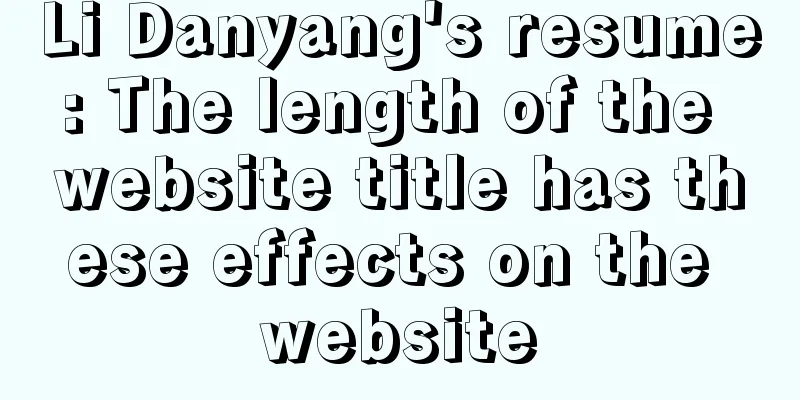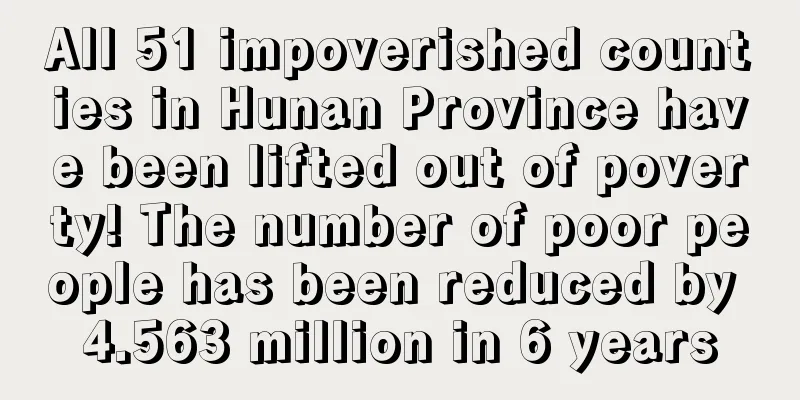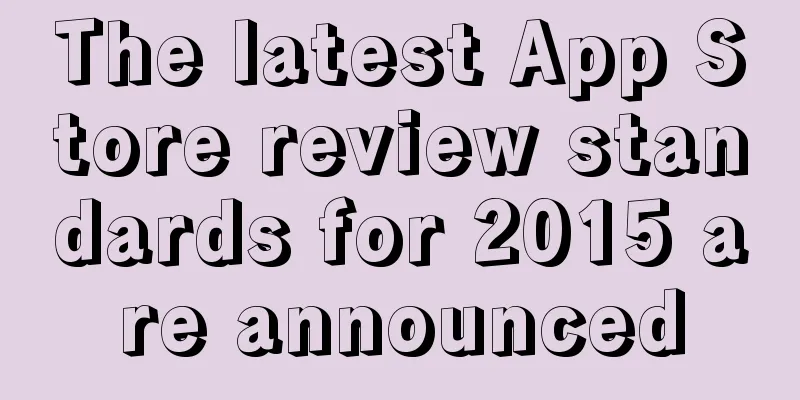Can WeChat’s paid reading function allow content creators to live a good life?

|
It has been rumored for a long time that WeChat will launch a paid reading function. As early as 2017, Tencent Chairman and CEO Ma Huateng revealed in a reply to the circle of friends of well-known media person Keso: WeChat public account paid subscription is being tested. After Keso responded that "it's been too long", Ma Huateng also said: "Feedback has been given, and we will try to speed it up." At that time, many people speculated that the paid reading function of WeChat official accounts would be launched soon, after all, Ma Huateng personally urged it. Who could have expected that this wait would take three years? Finally, today, the news came that WeChat is grayscale testing the paid reading function of subscription accounts. According to media reports, the Tencent WeChat team said today that it is currently grayscale testing the paid reading function of subscription accounts on WeChat. Qualified operators can go to the public platform to activate the paid function. After successful activation, the operator can set a fee for part or all of the content of the original article, and users can only read the full text after purchasing the article. We can't help but wonder, why does it take so long to wait for a simple WeChat public account payment function? Will the launch of WeChat paid reading function make life easier for content creators? After the launch of WeChat paid reading, what impact will it have on existing content payment products? Let's explain them one by one: Why is the paid reading function on WeChat so difficult to implement?In my opinion, there may be three reasons why WeChat paid reading was "difficult to launch" and took three years to start grayscale testing: First, WeChat officials may think it is unnecessary. Because WeChat public accounts already have a reward function, WeChat officials may think that if the article resonates with readers, the author will receive a reward, which seems to be equivalent to readers paying for the content of the article. But this judgment is obviously wrong, because oftentimes, professional and high-quality content in a certain field cannot receive the praise that matches the content of the article because of the small user group. Moreover, many times, people reward a public account more because they are infected by emotions and empathize with it, rather than paying for the content of the article itself. This has created an embarrassing phenomenon that truly professional and high-quality content has no one to reward, but those cool articles that are good at controlling and inciting people's emotions are more likely to be rewarded and earn income. Second, WeChat may be worried that opening the paid reading function will have an impact on the current WeChat content ecosystem. In fact, as a super platform with more than one billion users, WeChat is treading on thin ice with every step. Because every addition or reduction of WeChat functions will bring changes to the industry. As Zhang Xiaolong revealed in the WeChat Open Class not long ago, WeChat needs to think over and over again about the function of limiting the number of friends to 5,000, and is extremely apprehensive. For WeChat official accounts, opening up paid reading is actually a blessing or a curse. Because WeChat official accounts are a closed content platform, except for Sogou search, it is almost impossible to search for content in WeChat official accounts on other search platforms. This makes the spread of WeChat official account content very dependent on its own subscribers, WeChat Moments, WeChat groups, and WeChat search, etc. As the opening rate of WeChat subscription accounts continues to decline, the reading volume of WeChat official account content itself has been declining. In this case, if WeChat official accounts launch a paid reading function, it will most likely be more detrimental to the dissemination of WeChat content, and the opening rate and reading volume will inevitably be affected and decline. If the creators do not make much money, it will most likely greatly reduce the enthusiasm of content creators. This may be the second reason why WeChat is hesitant and has been slow to open the paid reading function. Third, WeChat lacks interest in the content payment market. We know that knowledge payment has been on the rise in China for four or five years, but so far we have not seen a truly rising unicorn company. Instead, we have seen more knowledge payment platforms rise rapidly and then gradually disappear. The only one that may have done well is Luoji Siwei, founded by Luo Zhenyu, but its current performance cannot be said to be a great success. In October 2019, the media reported that Luoji Siwei would be listed on the Science and Technology Innovation Board, but there has been no further news so far. An investment document exposed in 2017 disclosed Luoji Siwei's revenue data. In 2015, 2016 and Q1 2017, Luoji Siwei's revenue was 159 million yuan, 289 million yuan and 151 million yuan; net profit was 18.6 million yuan, 44.62 million yuan and 38.05 million yuan, corresponding to net profit margins of 11.7%, 15.5% and 25.2%. As a leading platform, Luoji Siwei is still like this, and we can also infer the embarrassing situation of the knowledge payment market in China. Therefore, for a giant like WeChat, such a market size is useless. Introducing paid content does not bring much commercial benefit to WeChat, and it will also bring new problems such as blocking the spread of content. Naturally, WeChat officials are not very willing to launch the paid reading function. Why is WeChat testing the paid reading function at this time?Another question is, since WeChat officials have no strong desire to launch a paid reading function, why did they start grayscale testing of the paid reading function at this time? In my opinion, there are two main reasons: 1. Deal with competition from Toutiao and Baijiahao. WeChat obviously understands that no matter how other independent knowledge payment platforms try, they cannot really have a substantial impact on WeChat's content ecosystem. However, the actions of its two major rivals, Toutiao and Baidu, in terms of content may pose a serious threat to it. In particular, Toutiao is currently vigorously developing paid columnists and guiding content creators on how to write articles that users pay for through a one-to-many guidance method. In fact, Toutiao has previously developed a large number of high-quality content creators in various industries through high-quality creator service packages and the Qingyun Plan, contributing more and more rich content to Toutiao, while causing the loss of original creators of WeChat public accounts, which is obviously something WeChat does not want to see. Therefore, WeChat’s launch of the paid reading function is more of a defensive measure, mainly to deal with the competition for high-quality content creators by content platforms such as Toutiao and Baijiahao. 2. Allow long-tail trumpets to have their own living space. WeChat official accounts have not undergone a major revision for a long time. Over the years, they have basically been patched up, and no features have been introduced that would make WeChat official accounts "scream with excitement." In addition, due to WeChat's inaction, the large WeChat official accounts have all the traffic, while the long-tail small accounts have no traffic, causing more and more official accounts to stop updating. Therefore, at a previous WeChat open class, Zhang Xiaolong said, "In an age where everyone can create, we hope that long-tail small accounts will have their own living space." Now it seems that the launch of the paid reading function is the "prescription" Zhang Xiaolong prescribed to activate long-tail small accounts. The purpose is to allow long-tail small accounts to earn revenue through paid reading, thereby giving the creators of these long-tail small accounts the motivation to continue creating on WeChat public accounts. After WeChat officially launched the paid reading function, what is the impact on the industry? Although the paid reading function of WeChat official accounts is still in the grayscale testing stage, I think that due to the pressure of competition and the need to activate the content ecosystem, the paid reading function of WeChat will be officially launched soon. So, after the paid reading function of WeChat official accounts is launched, what will be the impact on this content industry? First of all, the launch of the paid reading function on WeChat is undoubtedly a boon to content creators. However, not everyone can really benefit from it. Currently, most of the income of WeChat public account authors comes from advertising, and some comes from readers' tips. The content on WeChat official accounts that can really make users pay is probably still knowledge content and some exclusive information content. At present, the content of most creators is basically news and comments. Users are not willing to pay to read this kind of content. Even if there is demand, it is a niche demand and cannot support a huge content payment ecosystem. Therefore, the real beneficiaries may be those content creators with exclusive content and real professional knowledge system. Secondly, for other content platforms, the launch of the paid reading function on WeChat will not pose a big threat in the short term, but in the long run, the danger outweighs the opportunity. Because everyone is still in the exploratory stage in the field of paid content, and no one has really taken shape, the launch of the WeChat reading function on WeChat is essentially a supplement to the existing functions, so in the short term, it may not invest too much energy in the construction of related businesses. However, this does not mean that the future will be safe, because with the efforts of WeChat and Toutiao in the field of knowledge payment, they will inevitably invade the knowledge payment market in the future. If independent knowledge payment platforms fail to build their own moats, the content payment market that has been painstakingly cultivated may eventually be harvested by giants. Finally, it is obviously a good thing for the knowledge content payment industry. The most direct thing is that it can drive up the valuation of some independent knowledge payment platforms, because WeChat, Toutiao and Baidu have invested in the knowledge payment industry, which means that this field has been widely recognized by Internet giants, and it also means that it represents the future development direction of a certain direction of the content industry. At the same time, WeChat has launched a paid reading function, which, with its huge influence, will surely attract more original creators of high-quality content to "go into the writing business". This will bring new creative power to the knowledge payment market, and then promote the prosperity of the content payment market. Overall, the launch of the paid reading function on WeChat is not a "wolf cry", but a real coming. This may just be the beginning of WeChat's efforts in content construction, and the paid reading function is just the "appetizer". The next big move of WeChat may be short content, so we might as well wait and see. |
<<: 2019 APP download rankings released: Douyin ranks second with over 700 million downloads
>>: Apple iPhone 11 users can disable Ultra Wideband feature in iOS 13.3.1 Beta 2
Recommend
Analysis on promotion of Migu Reading and Kindle check-in activities!
Some time ago, Migu Reading launched the "Ch...
Meizu App Store promotion information flow advertising delivery process and billing method!
1. Introduction to advertising types 1. App Store...
SLAM algorithm analysis: grasp the difficulties of visual SLAM and understand the general trend of technology development
SLAM (Simultaneous Localization and Mapping) is r...
Design logic of high conversion plan of "live broadcast + group"
What are the application scenarios of “live broad...
How to promote Fanstong? Three things you should know about social media performance channel promotion (I): What is your channel?
The author of this article, Sister Xiaoli, has ma...
2021 Yixiantian system development plan Yixiantian chip tactics video + indicators
2021 Yixiantian System Development Plan Yixiantian...
Toutiao video information flow advertising marketing plan!
Toutiao video information flow advertising market...
Marketing promotion: How far are "HEYTEA" from Starbucks?
At the beginning of the year, Ma Dong accepted an...
The era of the Internet of Things system: goodbye iOS and Android?
With the implementation of smart scenarios such a...
Top 10 marketing trend predictions for 2022!
Looking back at 2021, there were many impressive ...
Cases + Tips | Create high-conversion information flow ads in 5 easy steps!
In the past two years, information flow advertisi...
Taking "Get" as an example, a brief analysis of how knowledge monetization can be combined with social networking
Taking " Get " as an example, the artic...
Analysis of Taocaicai’s operating methods!
Recently, I have become addicted to shopping for ...
Analysis of advertising in the education and training industry from March to May
Due to the impact of delayed resumption of work, ...
Xiaohongshu is a project that promotes products and makes money. How does Xiaohongshu make money by promoting products?
Every industry needs users, and Xiaohongshu is th...









